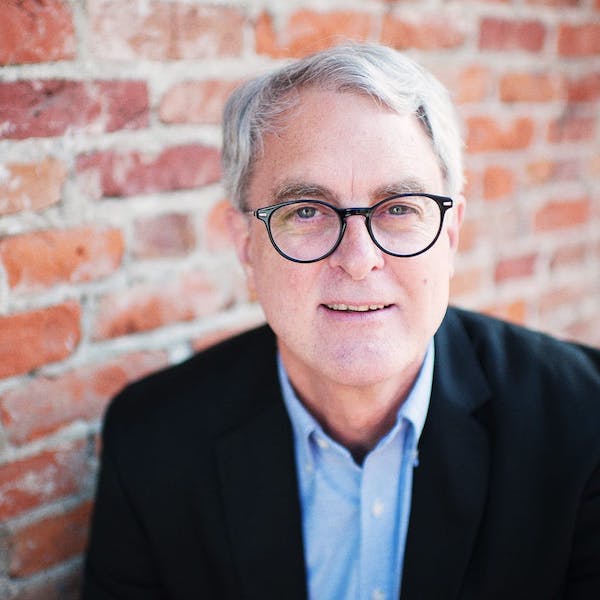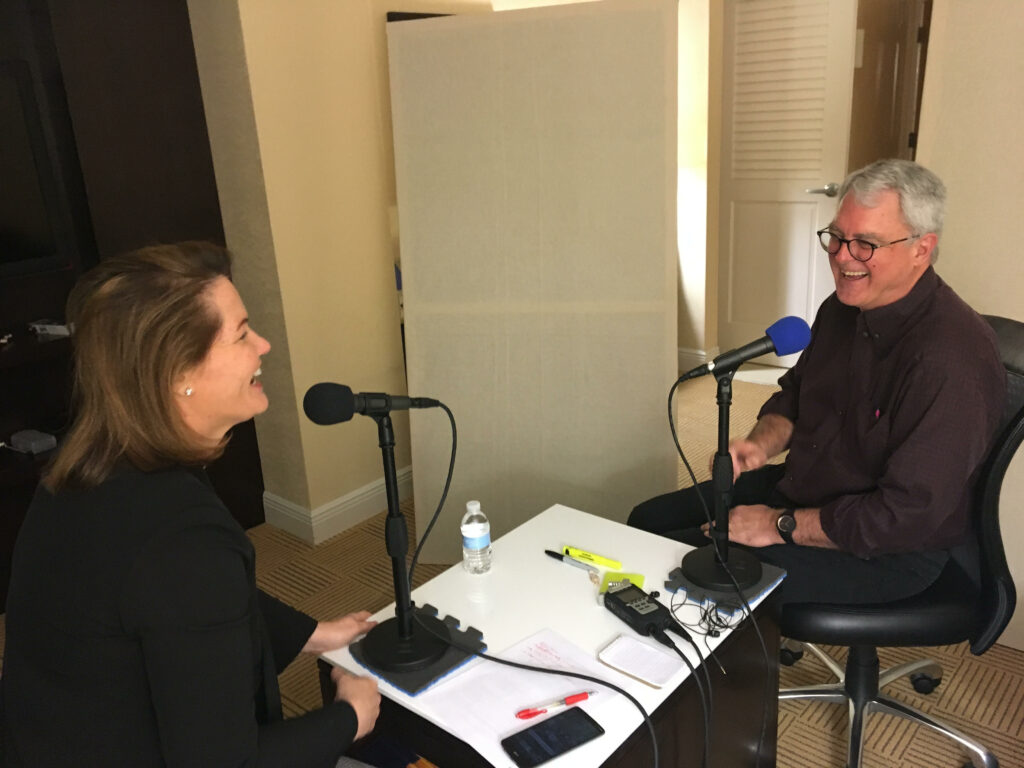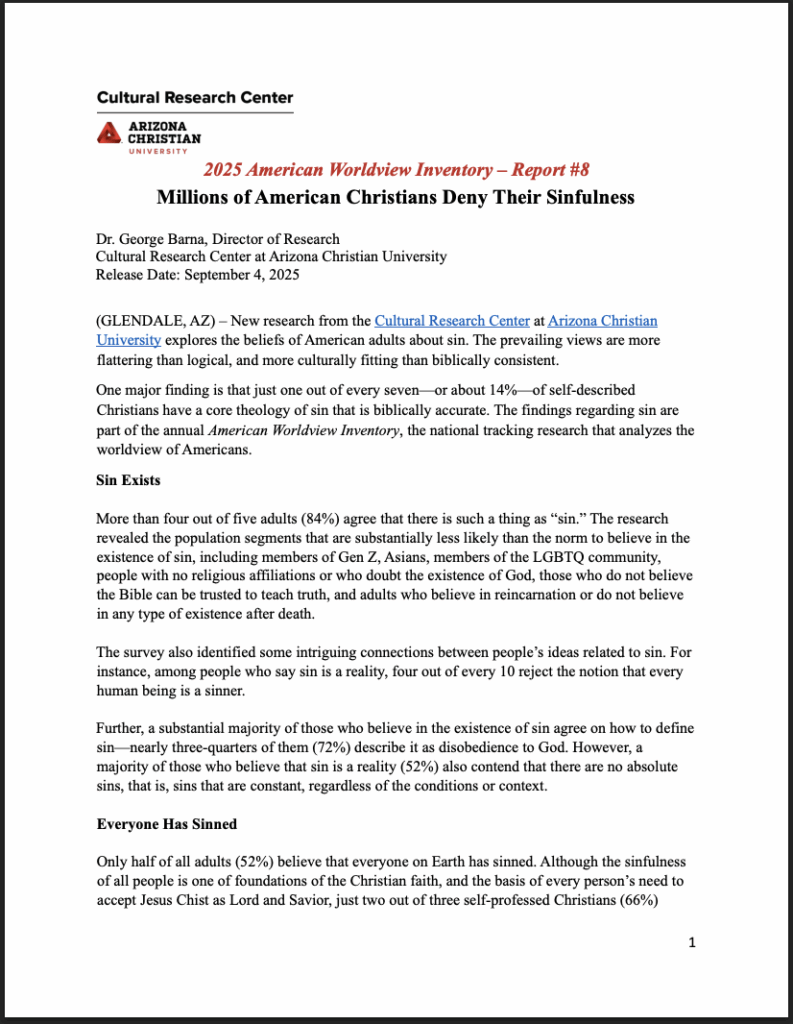
Only one out of seven of self-described
American Christians have a biblically-accurate understanding of sin
What do you believe about sin? What does God say about sin? And if people aren’t really sinners and sin isn’t a really big deal at all, then why did Jesus die on the cross?
Would it surprise you to learn that even though two thirds of American adults might describe themselves as Christian, a surprisingly low percentage of them believe sin is real— and certainly don’t see themselves as sinners?
I spoke with Dr. George Barna, director of research at the Cultural Research Center at Arizona Christian University about findings on this topic from the 2025 American Worldview Inventory.
The Bible says that all of us sin and have fallen short of the glory of God. But when it comes to our understanding of what sin is, we have a deep confusion in the culture today and widespread denial of sinfulness among many people.
Dr. Barna and I explore findings from the American Worldview Inventory, Report 8, exploring beliefs Americans hold about sin. Download the full report with relevant Scripture references here.
Carmen: So let’s do this kind of the headline, the major finding here in terms of sin and the belief of American adults in the reality of sin and their own. So what did you learn?
George Barna: Well, we learned a lot, but I guess the bottom line on this is that most Americans, more than four out of five Americans believe that there is such a thing as sin way, way fewer. Only about half of us believe that everybody has sinned. Again, only about half believe that they personally are guilty of sin. A much higher percentage believe that it’s not that big a deal because people are basically good at heart, “God created us. He cares about us, he loves us, he wants the best for us. He’ll take care of us. So I don’t have to worry too much about my sin. It’s all going to work out in the wash.”
And so when you look at all of this put together, and we learned a bunch of other things too, but the bottom line here may be that only one out of seven self-identified Christians, that two out of three who call themselves followers of Christ, only one out of seven of them have a core theology about sin that’s truly Biblical. And so we’ve been able to convince ourselves that our feelings about ourselves—about our behavior, about sin, evil, wickedness, goodness— our feelings about all that is much more important than what the Bible might teach about it. And therefore, we’re going to let our feelings determine how we go forward from here.

Carmen: So sin is real. Let me just be really clear here as you’re listening, sin is real and you are a sinner, and I am a sinner. The Bible says all have sinned and fallen short of the glory of God. And so everyone has sinned, and it’s a big enough deal that the only way to resolve the sin problem was for Jesus, the second member of the Trinity, to give up the glory of heaven and condescend into human reality and not only take on the life of a human being, but then to have that life be sacrificed in the most brutal way possible on a Roman cross, that his sin offering would atone for your sin and my sin and the sin of the world. Sin is a big deal. And so George, how is it that we have departed so far from the truth of what the Bible says? I mean, if people say, yeah, I’m a Christian, but no, I’m not a sinner and you’re not a sinner, and sins not a big deal, then what kind of Christianity even is that? That’s not a biblically-consistent Christianity.
George Barna: No, that’s not Carmen. But you asked the question, how do we get here? I think there are a lot of possible explanations. One of them is, well, who’s going to teach people about sin? Certainly it’s not the government, it’s not our schools. It’s biblically the calling of family to do that. Now you go back to the “Shema” in Deuteronomy 6, and it talks about how it’s our responsibility to be talking about the things of God within our family unit every single day. So important that we’re supposed to be writing it on our skin, attaching it to our foreheads, reading the scriptures, constantly praying to God to help us, to reveal things, to cleanse us. All of these things, I mean, that’s a family obligation, but we know from our research that families either don’t know they have that obligation or they don’t know how to deal with that obligation, or they’re simply not willing to address those kinds of issues in life.
So what’s the fallback strategy in America? What we’ve decided is, well, I’m not going to do that in my house, but I’ll take my household members to church and they’ll get what they need there. They’re the professional religious people, so they’ll take care of this. But a research study done by Pew Research five or six years ago, they took an enormous number of sermons randomly chosen from across the country in Christian churches, and they did what’s called content analysis of those sermons, which means that they analyzed everything that those sermons talked about. They found that only 3% of our churches even mention sin in those sermons.
And so families aren’t doing it, churches aren’t doing it. So what does that leave? Well, it comes back to the individual. And what we know is that most American Christians, most Americans, don’t believe the Bible is completely true and reliable. They don’t spend time reading it during a typical week. They’re not worried about their sin. They’re more worried about happiness and comfort. And so that again, comes back to our feelings and we’re just not feeling this discussion about sin. It’s unpleasant, it’s uncomfortable, we don’t want to go there. We’re just going to trust that because God loves us, he’ll take care of it on our behalf somehow and we can go on living and try to enjoy the life he gave us.
Carmen: George, what does the Bible actually have to say in terms of sin?
George Barna: It’s really clear, Carmen, you talk about a redemptive narrative. So what does that narrative incorporate? Well, first of all, it talks about the fact that no human being is morally or spiritually perfect. Everybody on earth, regardless of how good they think they are, regardless of how good other people think they are, we all sin. We all are held up to a standard. That standard is God who is morally and spiritually perfect. And when you compare us with him, we’re not. And so we’re called by God to live that kind of life. We don’t do it. And so why not? Because it’s a choice that we make. Every decision we make is a choice. When we sin, when we do good or bad, those are choices. And so our choices are letting us down. We’re not meeting God’s expectations. And so why is that happening? Why would we even consider making bad choices? Well, because as the Scriptures tell us, and if people get this report, I’ve got all kinds of verses and passages from the Bible in there that explain.
So we make these bad choices because as the Bible tells us, the human heart is wicked, it’s deceitful, it’s proud, it’s corrupt meaning are you getting the flow here of—
Carmen: It’s like a little idol factory.
George Barna: Yeah, I mean it’s not good. And I mean rather than thinking so highly of ourselves, we need to recognize that look, when you’ve got that kind of heart, you’re going to break God’s heart because our sin has consequences. And the most serious of those consequences is that our sin undermines, it completely disrupts, it destroys our relationship with God. And we don’t want that. You can’t live that way eternally. You’re toast if you let it go. And so a lot of people are going to start doing the natural human thing thinking, okay, what can I do to erase that sin, to escape these kinds of penalties or punishment or disruption of relationship?
And once again, the Bible is really clear in Isaiah, Jeremiah, Ephesians, they all talk about the fact that we are incapable of overcoming the consequences of our own sin, which is as you pointed out in the first segment, Carmen, why Jesus, God himself had to assume all of our sins and die to those a horrible, unjust, painful death, very public and embarrassing. He was willing to do that. Why? Only because he loves us so much. He doesn’t want that relationship broken. He realizes we’re incapable of addressing it. And so he became our Savior. That’s what Savior means.
He’s saving us from the consequences of our sin. And eternally we would be punished for those sins if he had not first of all died on that cross and given us a way to embrace him so that when we stand before that holy and righteous God who will judge us for the choices we made, he’s not ugly and mean about it. He’s just saying, so what was your decision? What did you decide to do? And when we decided to break his heart, if we have now recognized how awful that is, we’ve called on Christ to save us, then anyone who sins can acknowledge that sin, confess it to God, repent for it, and accept Christ as our savior and repair that relationship.
The Bible is really clear in Isaiah, Jeremiah, Ephesians, they all talk about the fact that we are incapable of overcoming the consequences of our own sin, which is as you pointed out in the first segment, Carmen, why Jesus, God himself had to assume all of our sins and die to those a horrible, unjust, painful death, very public and embarrassing. He was willing to do that. Why? Only because he loves us so much. He doesn’t want that relationship broken. He realizes we’re incapable of addressing it. And so he became our Savior. That’s what Savior means. He’s saving us from the consequences of our sin.
Dr. george barna
But the other thing we’re finding is that Americans do not understand repentance. We think that it’s quickly ripping off a few words in a prayer and then it’s all well and good and we can get on with living. No. Repent means to turn around. And the turnaround that it’s talking about is the way that we live our lives. We want to turn our life from the direction it was going and point ourselves toward God and his holiness and his love, his graciousness, so that we can live a Christlike life. Will we become perfect at that point? No. But when we keep that relationship with God going in, and as we continue to sin, we continue to confess it and repent and ask him to forgive us through the blood of Christ for that sin, we can live that better life. But we’ve got to understand how this works. And I think the only way that’s going to happen is if each of us keeps going back and reading and rereading and memorizing and reflecting on and meditating on these scriptures about how sin is Satan’s tool to destroy us. And so we can make a choice. Do we want to be destroyed or do we want to be saved?
Carmen: So George and I want to be of encouragement to you today. We want to encourage you to understand the truth of reality. We want you to see reality for what it really is and yourself for who you really are. And so this isn’t us jumping on you. This is George and I loving you enough to tell you the truth, because the enemy has diluted a lot of Americans, a lot of Americans into believing that, well, I mean we’re not that bad. I’m not that bad. I’m certainly not that bad looking at some other standard. But the standard is Jesus, the standard is perfection. The standard is the holiness of God. And so I want to share this passage from one John chapter one, and I just want you to consider for a moment where you are in terms of having confessed the reality that you are a sinner in need of a Savior.
So 1 John 1 beginning at verse five says, “This is the message we have heard from him. And declare to you God is light in him. There is no darkness at all if we claim to have fellowship with God, and yet we walk in the darkness, we lie, we do not live out the truth. If we walk in the light, for he is in the light. We have fellowship with one another and the blood of Jesus, his son purifies us from all sin.”
Friends, if we claim to be without sin, we deceive ourselves. And the truth is not in us, but if we confess our sins, God is faithful and just He will forgive us our sins and purify us from all unrighteousness. If we claim we have not sinned, we make God out to be a liar. And his word is not in us.
So my invitation to you today, George Barna and I are inviting you today to consider not just the reality of sin, but the reality of your own sin, the reality of the ways in which you are not holy, and then say to God, God, I know I need a savior, and I recognize that’s who Jesus is, and I thank you for him, apply his righteousness to me. Apply the righteousness of Christ to me. Holy God, I turn from my sin, I turn toward you, and I ask you to purify me from all unrighteousness.
So my friend, that’s the invitation today. We want to send you all of these incredible resources that are captured in this part of the American Worldview inventory. It’s Report 8 and we want to send you the link so you can have all of these resources and all of these passages of Scripture to study this for yourself because each and every one of us needs to learn again as if for the first time, what the Bible actually says about sin. So let us do that on the text line, 877-933-2484. George, any walk-off thoughts?
George Barna: Yeah, I mean, we make a lot of decisions every day. This is the most important decision you’re going to make today. Are you going to live in sin or are you going to run from a sin toward Jesus? There’s nothing that you will do today that’s more important than that. And so I encourage you, I mean, even if you’re getting it right, take this seriously enough to continually reexamine your heart, your life, your behavior, your relationships, everything in your life. This is why we were made— to have relationship with God, and we can’t do that if we’re in sin. He’s too holy, He’s too pure. He can’t be around sin, and so we’ve got to take this seriously.
Carmen: I love it. Hey, we appreciate you so much, brother. We look forward to the next conversation.
Listener’s Guide: What’s Next?
After hearing an interview like this one, it can be easy to move on to the next thing on our to-do list, but instead, let’s take a moment to pause, reflect on what we have heard and consider how God might be asking us to respond.
Reflect
- What do you believe about sin? Where does that belief come from, the Bible or culture or your own feelings about what is right?
- Read 1 John 1:5, and reflect: “This is the message we have heard from him. And declare to you God is light in him. There is no darkness at all if we claim to have fellowship with God, and yet we walk in the darkness, we lie, we do not live out the truth. If we walk in the light, for he is in the light. We have fellowship with one another and the blood of Jesus, his son purifies us from all sin.”
Pray
- Carmen and Dr. Barna invite you to call out to God and repent of your sinfulness. Cast yourself on Jesus and receive His righteousness.
- Pray for fellow Americans who are denying their sin, pray they would awaken to their real sin and real need of Christ, our only Savior.
Act
- Download Report 8 and read through it. Consider if your beliefs about sin need realignment with the truth of God’s word.



